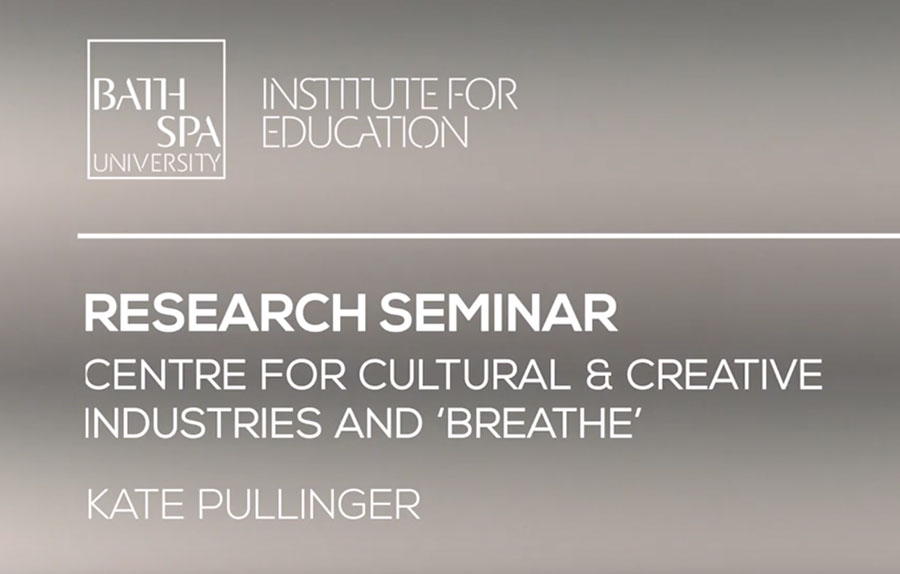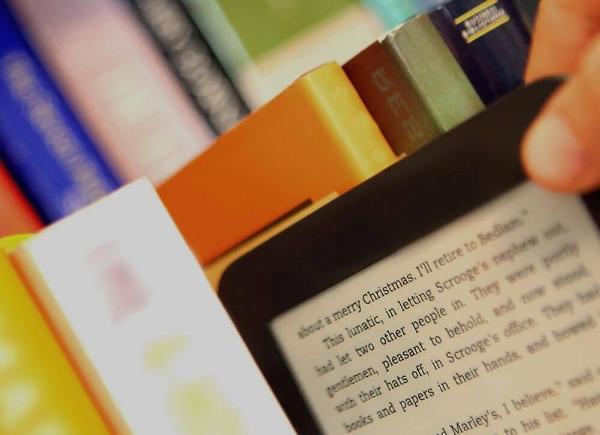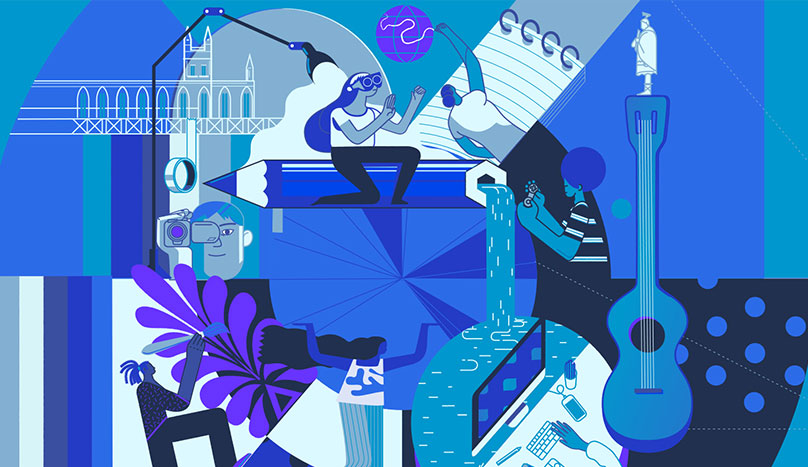-
Bristol Vision Institute – Richard Gregory Memorial Lecture 2019
Reality Starts Here. Building Fictional Futures to Change the World
Bristol and Bath Creative R+D was proud to support this year's Richard Gregory Memorial Lecture, which featured speaker Alex McDowell, an award-winning visionary designer and storyteller, working at the intersection of emergent technologies and experiential media.
Alex explained how collaborative and distributed storytelling can literally change the world as a container for multiple narratives that accumulate, weave and provoke unique multi-faceted insights.
-
Tech4Good: Role of Tech in Supporting Older People
In November 2019 Bristol+Bath Creative R+D welcomed Leticia Lozano to Bristol to talk about placemaking in Mexico City. Leticia is co-founder and director of MACIA Estudio, a transdisciplinary practice challenging the boundaries between architecture, experience design and applied research. This talk was hosted by Digital Placemaking Fellow Roseanna Dias.
After the success of the last four MIX conferences, MIX 2019 returned to the beautiful surroundings of Bath Spa University’s Corsham Court Campus this July.
This year’s conference was a more intimate, single strand version, curated for a smaller audience to give time and space to instigate conversations around digital writing with a focus on experiential storytelling, including immersive technologies and new forms of publishing, from transmedia and poetry film to virtual reality to AI in storytelling.
For more information and a list of our speakers, please visit the Mix Conference website.
On 22 May 2019, Making Books and the Centre for Cultural and Creative Industries held a seminar in collaboration with the Literature Between Media research centre at Aarhus University, Denmark. This seminar looked at the impact of digital technology on reading, including looking at new forms of literature designed for mobile phones.
Bath Spa's Alastair Horne presented his research on new forms of fiction and publishing for mobile phones, and Professor Ian Gadd presented a paper on reading as an ambient, situated practice.
-
When practice becomes research
CCCI’s successful symposium returned in 2019 to seek answers to the question ‘When does Creative Practice become research?’
This all-day event welcomed a multi-disciplinary panel:
- Jo Hyde, Conor Wilson, Lucy English and Ruth Farrar – who discussed the question ‘When does Practice become Research in my field?’
- Heather Dyer and Lucy English offered a workshop on how to articulate Creative Practice Research to a range of audiences
- Paul Newland discussed Creative Practice in an academic context
- Keynote speaker, Anita Taylor, considered the historic and current position of Creative Practice Research.
-
How books are fighting back in the digital age
CCCI joined a panel of writers, publishers and future-thinkers, and examined ways in which books are attempting to compete, re-imagine and revitalise storytelling in the digital age.
The panel explored new partnerships developing between writers, tech and the book publishing industry, and discussed how new audiences are being introduced to the work of emerging and established writers through advances in digital technology.
On Wednesday 24 April, Michael Morris joined Kate Pullinger in conversation as part of the the Bath Spa University Public Lectures Series, where they discussed the extraordinary work of Artangel, the London-based powerhouse that has been supporting artists to create site-specific installations and events since 1985.
Described as ‘the guardians of modern art’, Artangel’s commissions range from Rachael Whiteread’s House (1993) to, most recently, Taryn Simon’s An Occupation of Loss (2018), with former clients going on to win the Turner Prize and Academy Awards.
Reader in Creative Writing Lucy English has been invited for a second year to run a spoken word creative writing workshop at the Alpbach European Forum in Austria in August. Last year Lucy took three Bath Spa MA students to help her design and deliver the week-long seminar.
This year she will be accompanied by another student, who will help her organise a number of events, including 'Spoken word poetry – how to express yourself in front of people' with Austrian performance artist Anat Stainberg.
The Creative Corporealities Research Group (CCRG), Research Centre for Environmental Humanities (RCEH), and The Centre for Cultural and Creative Industries (CCCI) hosted this brilliant evening with dance artist Rosalind Crisp, who shared her practice in a performance lecture about DIRt (Dance In Regional disaster zones), a collaborative Australian project that asks how dance might embody, understand and connect to the extinction crisis in Australia.
This solo performance lecture was immersive and participatory, including film and choreography, its intimacy drew the audience close to the pertinent issues explored.
This was an inspiring event with 40 participants, who included Bath Spa academics, students, local and regional arts practitioners. The discussion afterwards was very stimulating, and it was enlightening to hear about Ros's choreographic practice and themes of ecological disaster.
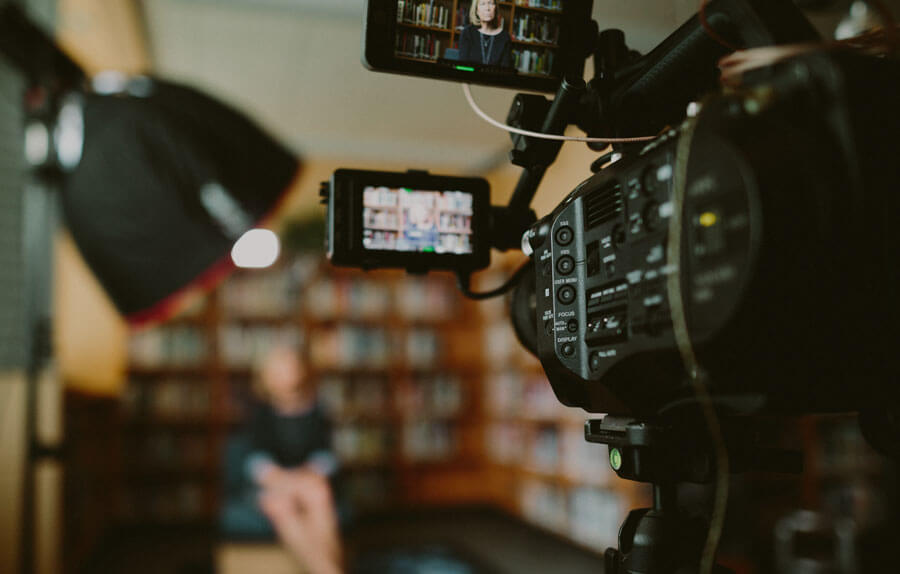
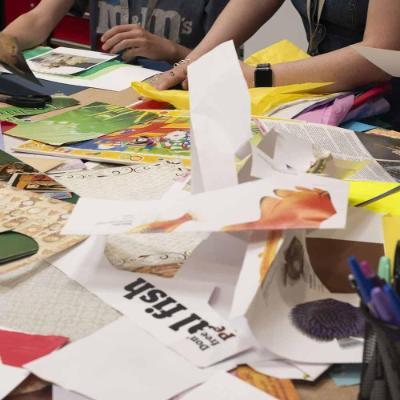 The Value of Artists
The Value of Artists
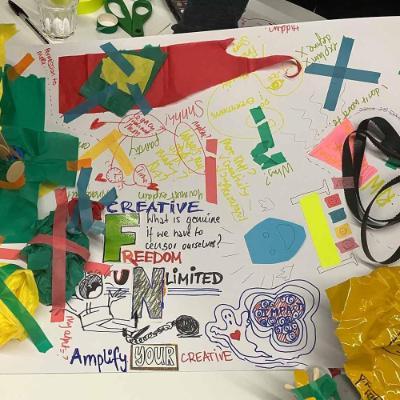 Culture West
Culture West
 City of Imagination
City of Imagination
 Forest of Imagination
Forest of Imagination
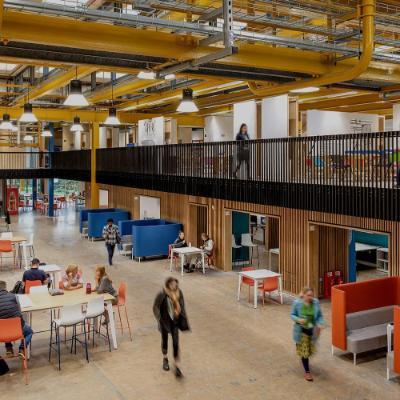 MIX Conference
MIX Conference
 Ambient Literature
Ambient Literature
